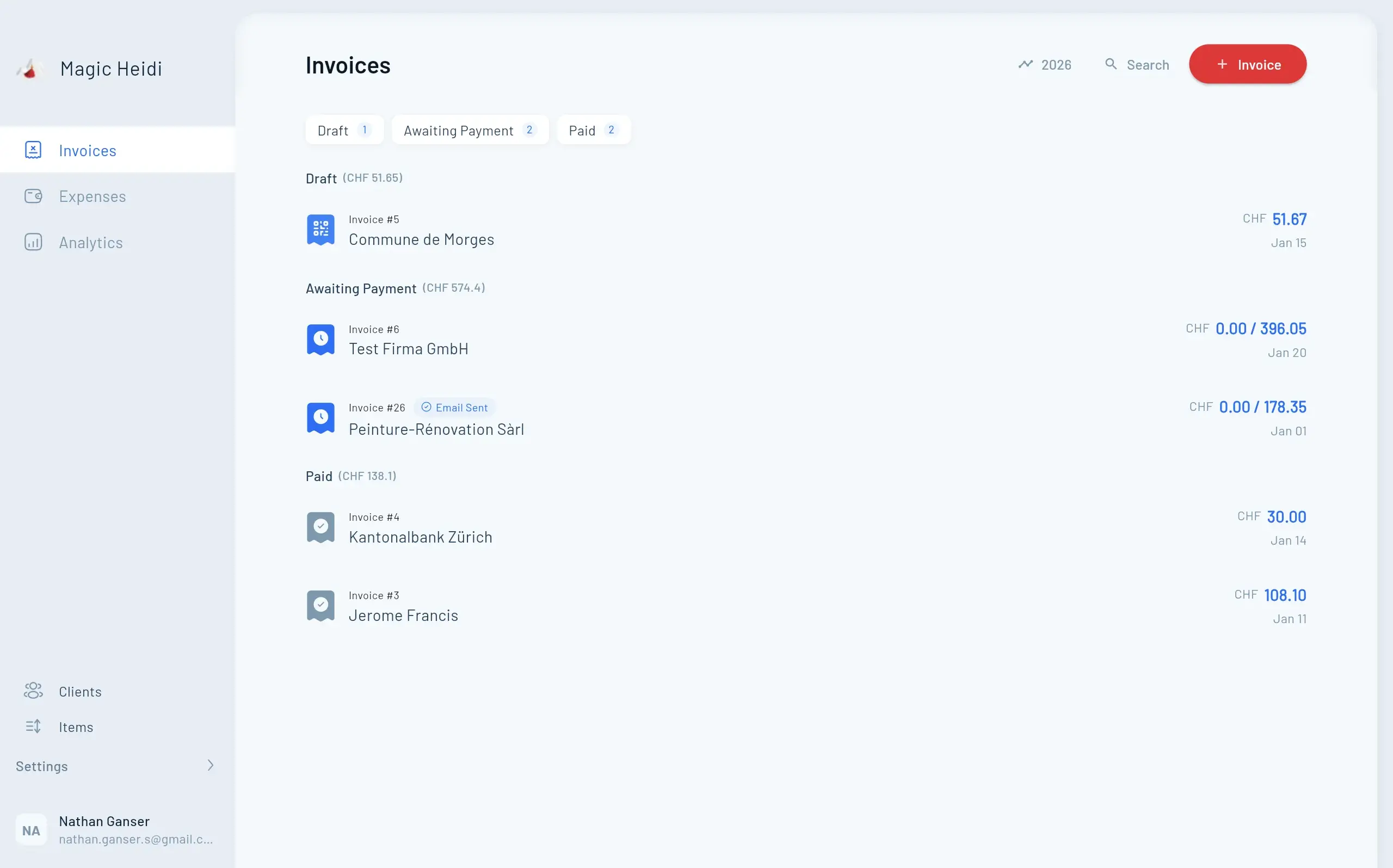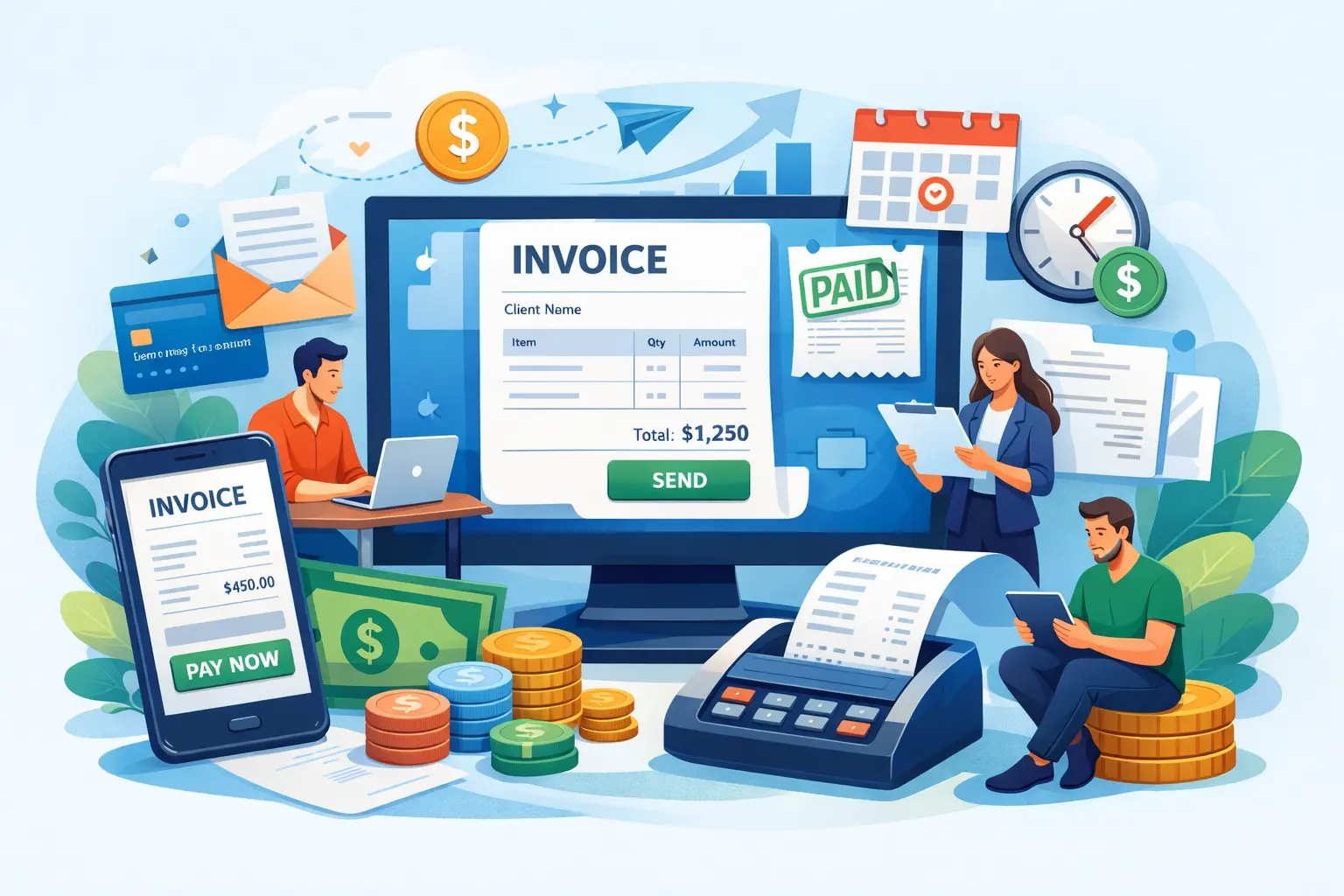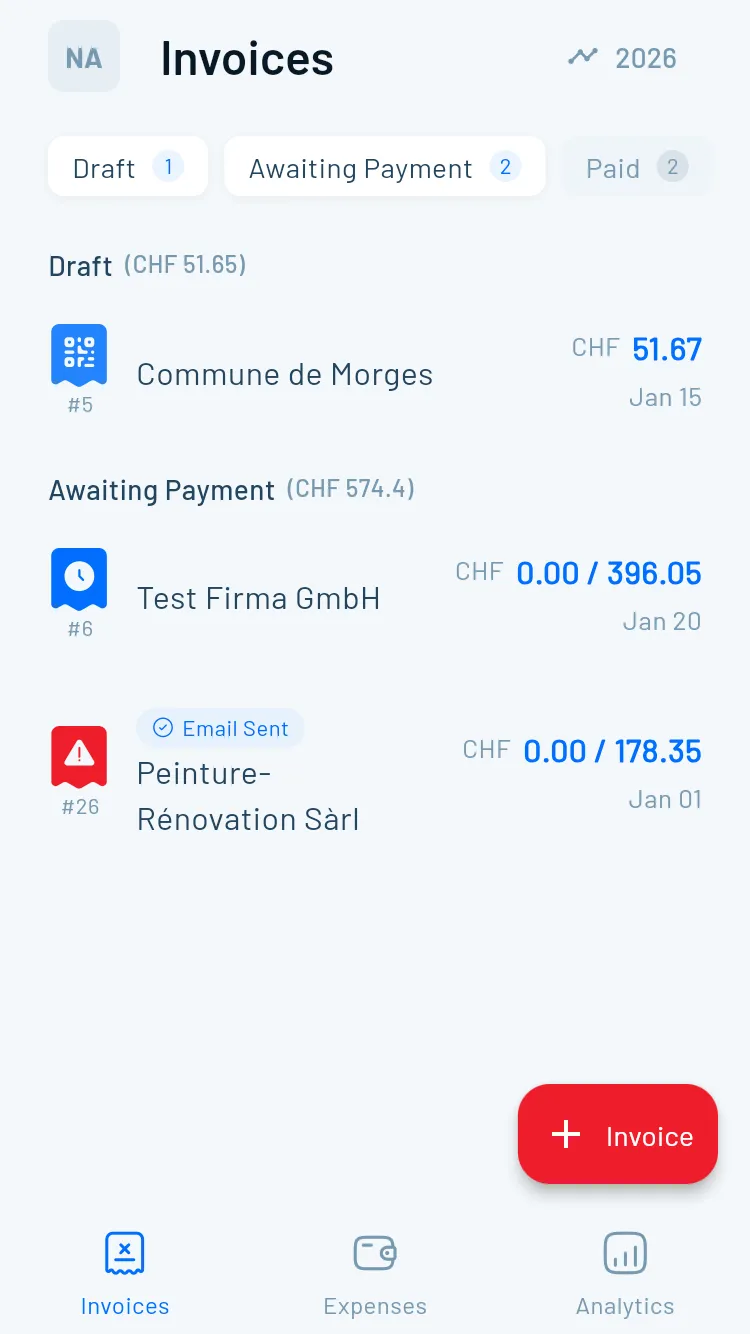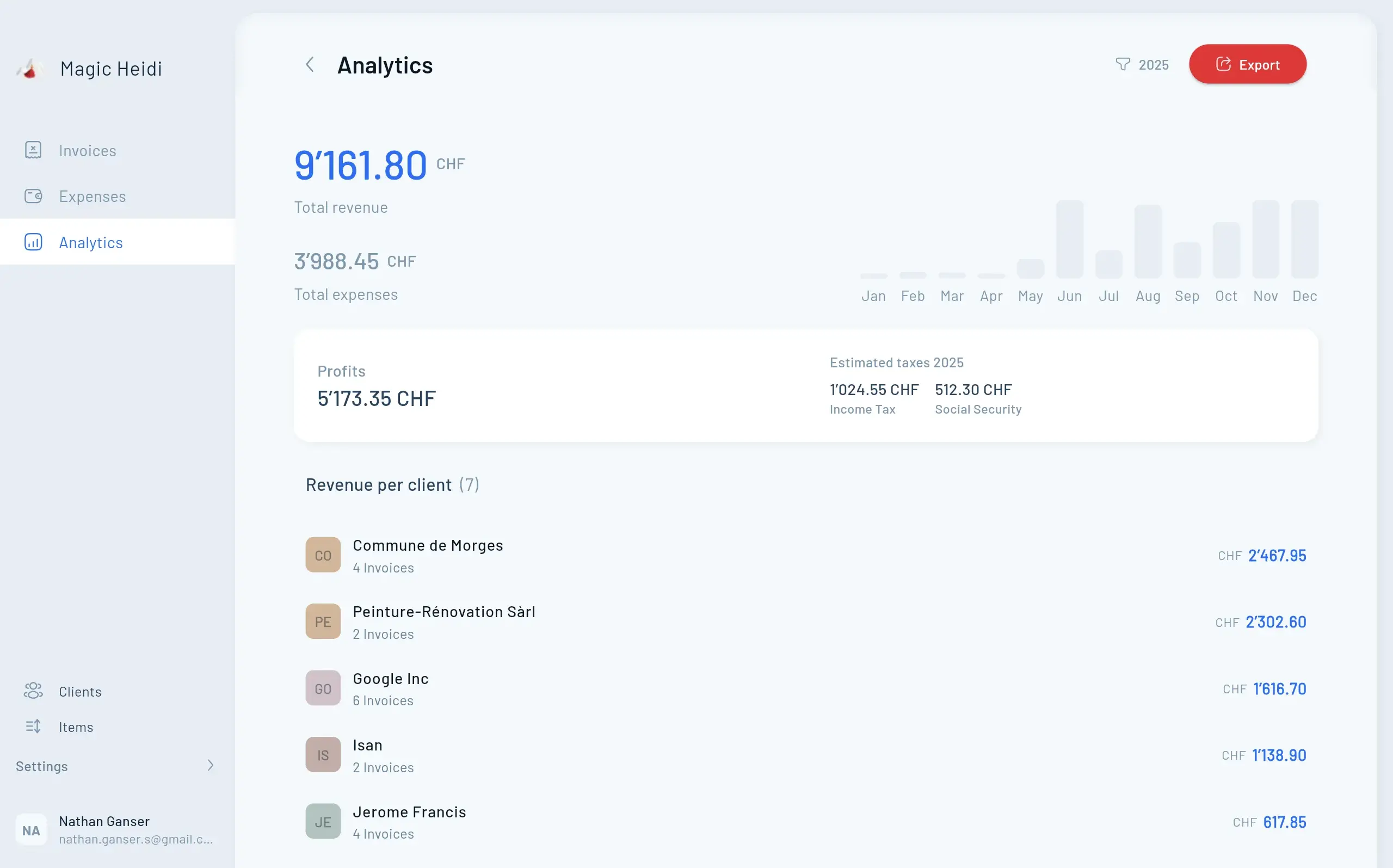Your Complete Business Information
Include your full legal name, business name (if registered), complete address, and—critically important—your VAT identification number if you're registered. Your VAT number follows this format: CHE-XXX.XXX.XXX MWST (or TVA/IVA depending on language region).
- Full legal name and business name
- Complete address
- VAT identification number (CHE-XXX.XXX.XXX MWST)
- Registration details if applicable







